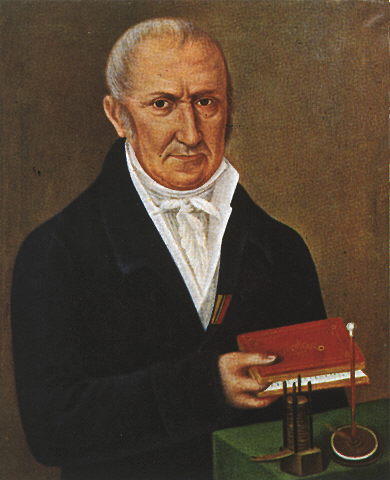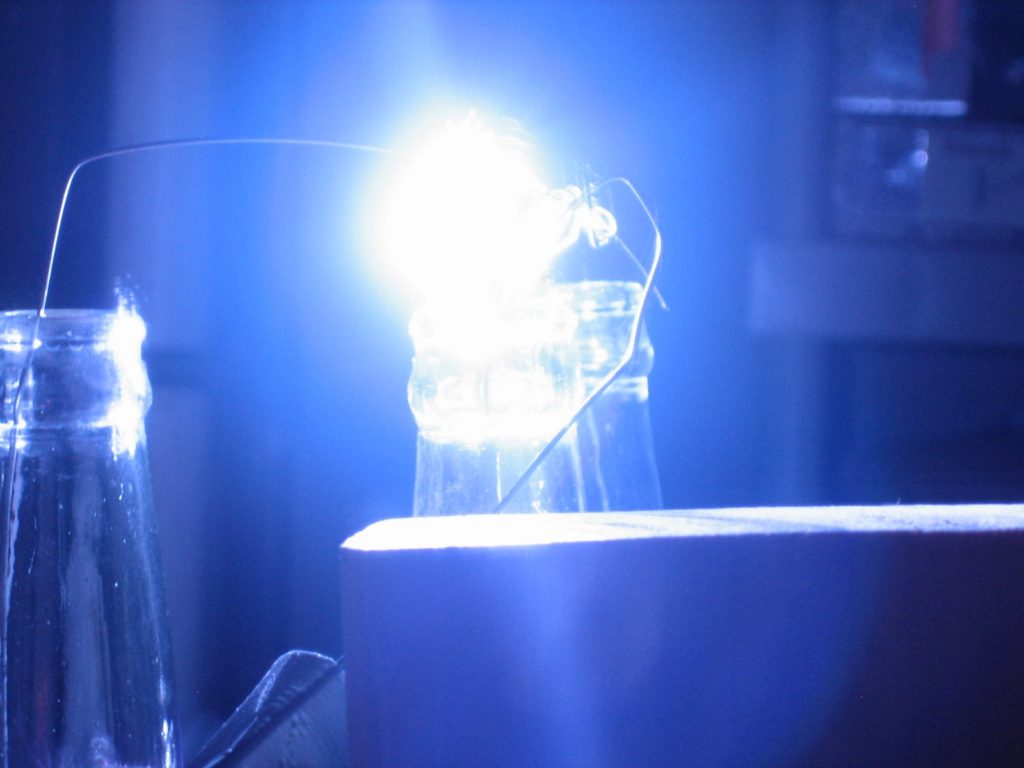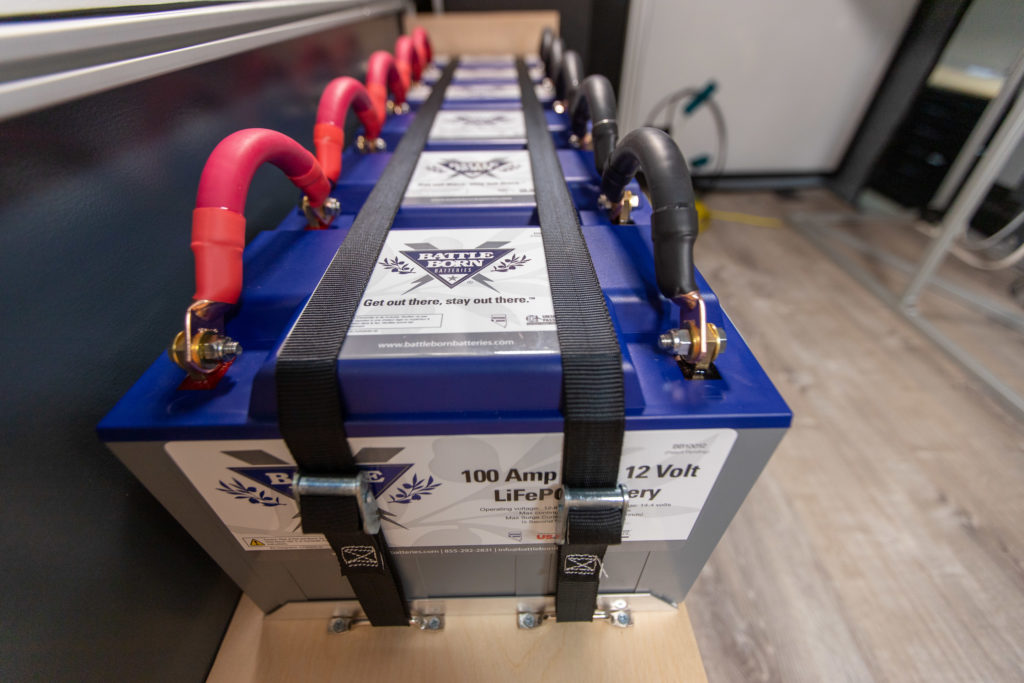
MENUMENU
TALK TO AN EXPERT
Special Hours: 7AM – 6PM PST
TALK TO AN EXPERT
Special Hours: 7AM – 6PM PST
Lithium-ion batteries have completely revolutionized our modern world. They’re energy-dense, compact, and can handle repeated charge and discharge cycles. They make it possible to have smartphones, laptops, electric vehicles, and off-grid solar power setups. And in our day-to-day life, it’s hard not to take them for granted. But have you ever wondered how they came to be? Or who invented the battery in the first place? Let’s take a deep dive into the history of the battery, why and how it was invented, and how we ultimately found our way to lithium.
Scientist started experimenting with capacitors and other early electric devices in the 1700s. But the official inventor of the battery was Italian physicist Alessandro Volta. In the year 1800, Volta created the “voltaic pile.” It consisted of alternating discs of zinc and copper with brine-soaked cardboard in between each layer.
Amazingly, his invention produced a consistent current of electricity. The “voltaic pile” even housed and transported energy during that time.

From the first battery, many other scientists invented additional and more successful designs. These early batteries were what’s called primary batteries, as they were not rechargeable. Users needed to replace the electrolyte and plates when they were used up. It wasn’t until 1860 that scientists invented the rechargeable lead-acid battery.
Alessandro Volta invented the battery when he was working as a professor of physics at the University of Pavia in Lombardy, Italy. Many other European countries like France and Germany made many breakthroughs in early battery technology as well. Germany invented the first rechargeable battery.
Volta actually came up with the voltaic pile to prove his friend, Luigi Galvani, wrong. Galvani believed that electricity came from animal tissue (a theory known as “animal electricity”). Volta believed that the contact of metals in a moist environment produced electricity.
The telegraph was one of the first regular uses of batteries, although people quickly invented many other uses.
Benjamin Franklin had a role in the invention of batteries, as well. In 1749, he created an early capacitor by linking “Leyden jars.” Leyden jars are essentially glass jars filled with water (or another conducting material) and lined with a metal foil.
The glass jar has a rod coming out from it and passing through a cork. These jars store energy until something touches the end of one of the rods to close the circuit. From this creation, Franklin coined the term “battery,” named after the military term for weapons functioning together.

Battery technology has come a long way since the creation of the voltaic pile, and lithium-ion batteries are a prime example. A lithium-ion battery is an extremely energy-dense type of battery that has completely transformed our modern world. These powerful little cells use lithium ions to carry a very high current in proportion to their size. They’re now the main batteries we use in laptops, cell phones, electric vehicles, and watches because of their compact form and high energy density.
Compared to batteries of the past lithium-ion batteries are lighter, smaller, safer, and non-toxic. They also do not emit any toxic gasses and you do not need to vent them like batteries of the past, making installation possible indoors.
Lithium-Ion Batteries consist of many different chemistries, but here at Battle Born Batteries, we focus on the most stable, safe, and longest-lasting chemistry, Lithium Iron Phosphate.

The lithium-ion battery came about in three different places throughout the 1970s and 1980s. An English Chemist named Stanley Whittingham was the first to begin experimenting with lithium in batteries. While working at Exxon Mobile in Linden, N.J., in the 1970s, he tried using titanium disulfide and lithium metal as the anode and cathode. However, that combination turned out to be extremely dangerous, and Exxon Mobile soon stopped the experiment.
Not long after, an engineering professor at the University of Texas in Austin picked up where Whittingham left off. John B. Goodenough experimented by using lithium cobalt oxide as the cathode instead of titanium disulfide. Not only was this much safer, but he found that the battery actually doubled its energy potential.
Finally, Akira Yoshino of Meijo University in Nagoya, Japan, advanced the lithium battery even further. He used a carbonaceous material (in this case, petroleum coke) as the anode. As a result, the new battery was much safer and more stable. His findings then became the first prototype of the lithium-ion battery.
In 2019, all three scientists received the Nobel Prize for their parts in creating the lithium battery.

The oil crisis of the 1970s aided in the invention of the lithium-ion battery. The Yom-Kippur War of 1973 resulted in major disruptions to oil supplies coming from the Middle East. Moreover, the Iranian Revolution of 1979 brought on more difficulties for Western industrial countries that relied heavily on cheap oil imports.
These events caused huge shortages in petroleum. As a result, inflation went through the roof. Because of this, there was a huge push in the scientific community to decrease our reliance on fossil fuels and create better ways of storing renewable energy.
If the battery didn’t exist, we’d have no way to store electricity. If we couldn’t store electricity, our society would be drastically different than it is now. Without energy storage, we would be completely reliant on the energy grid. Every device we own would still require an outlet in order to run. Cell phones wouldn’t exist, cars wouldn’t run as we know them, and we’d have no renewable energy. Yes, we would have electricity, but it wouldn’t be mobile.
Fortunately, scientists invented and developed the battery, and continue to improve and upgrade them today. Battle Born Batteries is proud to be part of the advancement of this technology. We have an entire Research & Development arm of our company that focuses on battery technology advancements and improvements to the manufacturing process. Learn more on our parent company site, DragonflyEnergy.com/the-technology.

How do you think life would be different if we didn’t have batteries? Let us know in the comments below!
We know that building or upgrading an electrical system can be overwhelming, so we’re here to help. Our Reno, Nevada-based sales and customer service team is standing by at (855) 292-2831 to take your questions!
Also, join us on Facebook, Instagram, and YouTube to learn more about how lithium battery systems can power your lifestyle, see how others have built their systems, and gain the confidence to get out there and stay out there.
Shop Best Sellers








Ask a technical specialist now at 855.292.2831
Stay in the Know